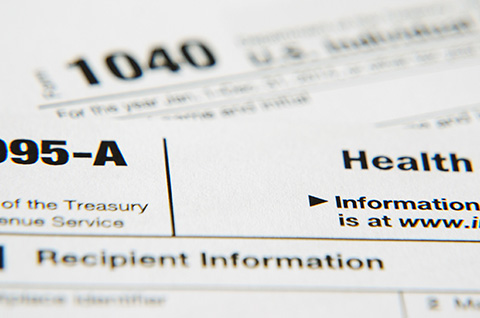Big Tax Filing Changes Because of Trump's Executive Order on Healthcare
The IRS is easing a key regulation when filing your 2016 taxes
The executive order, dated Jan. 20, 2017, allows government agencies, “to the maximum extent permitted by law… to waive, defer, grant exemption from, or delay the implementation of any provision or requirement of the Act [Affordable Care Act] that would impose a fiscal burden on any State or a cast, fee, tax penalty, or regulatory burden on individuals, families, healthcare providers, health insurers, patients, recipients of healthcare services, purchasers of health insurance, or makers of medical devices, products, or medications.”

This executive order has spurred a major tax change
Two key components of Obamacare are the individual mandate and Shared Responsibility Payment (SRP). The individual mandate is the part of Obamacare requiring all persons to buy health insurance or face penalties. That penalty is the SRP. Estimates from the Kaiser Family Foundation predict that the average household SRP in 2016 will be $969.
In 2014 and 2015, the Internal Revenue Service (IRS) was lenient to those individuals who failed to include proof of their health coverage during the previous year. However, the IRS had made it clear that any Form 1040s filed for the 2016 calendar tax year without line 61 filled in — the line that would demonstrate to the IRS if you had health coverage or paid the SRP — would be rejected.
But that was before Trump’s executive order.
According to Yahoo Finance, the IRS will once again be accepting electronic and paper tax returns for calendar year 2016 without line 61 filled in.
Without line 61 filled in, the IRS has no way of knowing if the taxpayer paid the SRP or was even insured in 2016. In effect, Trump’s executive order has made it nearly impossible for the IRS to collect the SRP or to concretely verify an individuals’ health insurance status.
That’s a big deal. It means that while the law is technically still on the books, and consumers need to be aware it hasn’t been repealed yet, it seems clear that the President intends for people to have choices in their healthcare, including whether and what to have.
While the law on the books still says that people must have Obamacare health insurance or face a penalty, President Trump has clearly instructed the IRS not to enforce that provision and the IRS is complying with the President’s Order.
